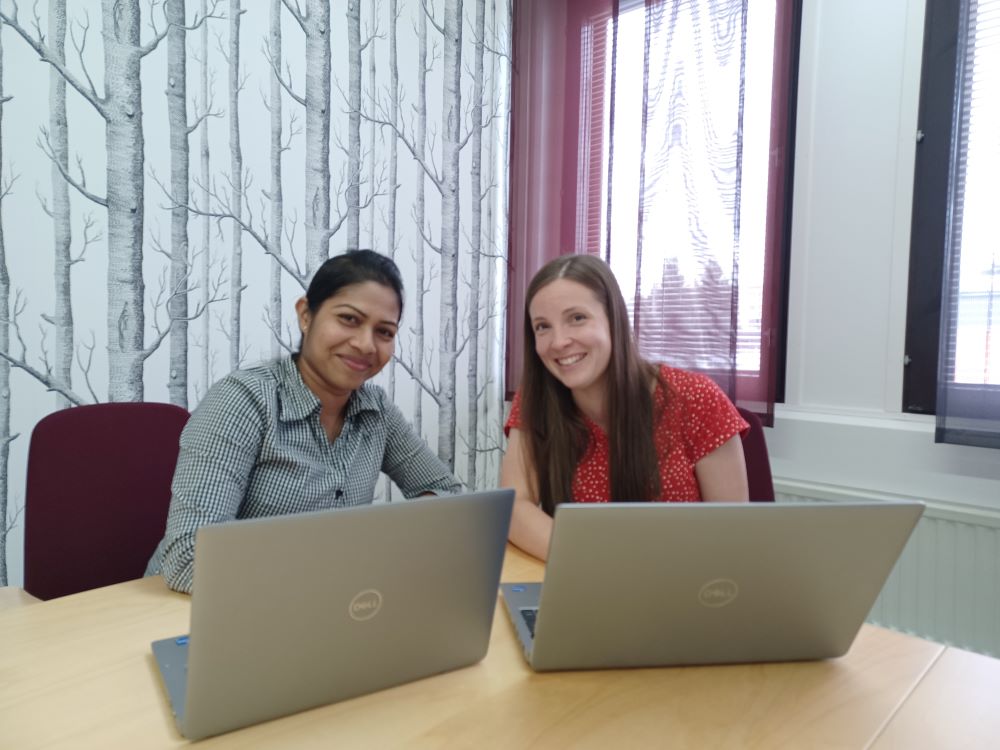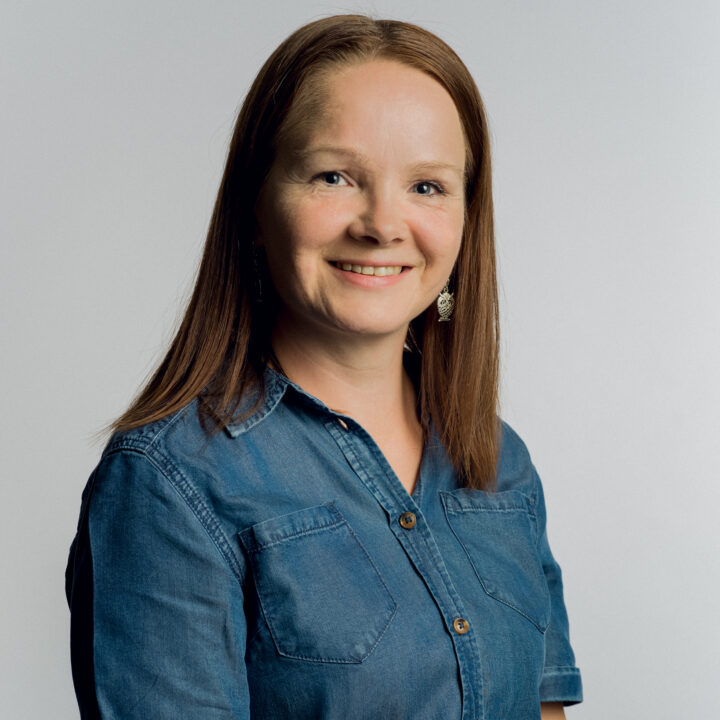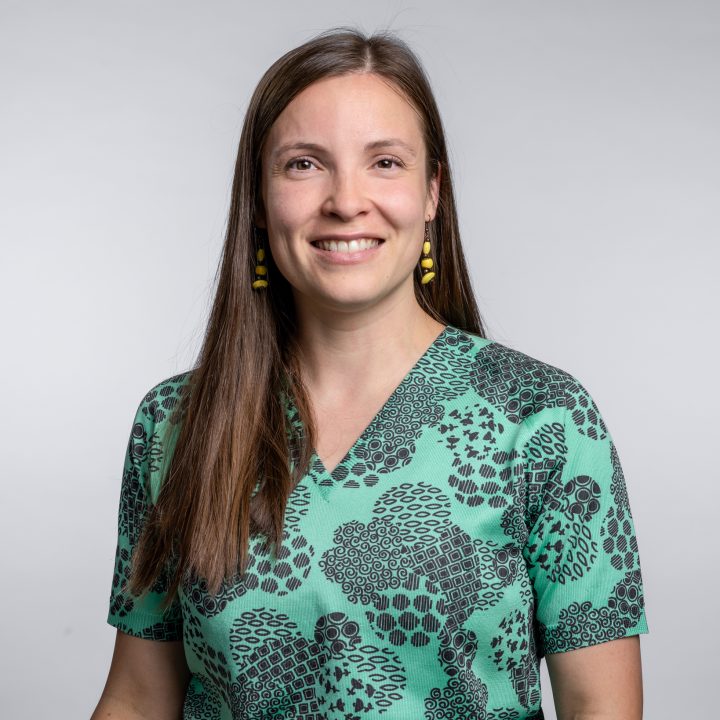In the light of demographic development of Kainuu, young people and international talents are important groups for the region. Therefore, regional development activities should be directed to better meet the needs of both these groups. In a study published in June 2024 by E2 Research, young adults’ views on their life and future in Eastern Finland were investigated. In this article, Regional Development Director Jouni Ponnikas and Intern Shanika Kurukulasuriya from the Regional council of Kainuu reflect on the research results, especially from the perspective of international students in Kainuu.
Viewpoints of Newcomers
Kajaani University of Applied Sciences attracts many international students to Kainuu. There are several educational programs available in English, and students come to Kainuu from many different countries. Kainuu is a very different region compared to many of the home regions of the international students. But what does Kainuu look like in the eyes of international students?
Shanika Kurukulasuriya, currently working as an intern at the Regional Council of Kainuu, and studying at KAMK for the second year, tells her first impressions of Kainuu. It might not come as a surprise to our readers that these have to do with the weather conditions:
I arrived in Kajaani in the end of November 2023, stepping into a world where the temperature was quite extreme and more than 50 degrees different than my home country Sri Lanka. Adjusting to the weather conditions took me some time. I slipped a lot, for example, and had numb feet. I even had my eyelashes frozen, making me feel like Santa Claus! However, experiencing snow for the first time was a delightful experience.
But in the end, the weather of Kainuu surprised her in a positive way:
On the other hand, the summer weather here has pleasantly reminded me of the climate in my home region. Before arriving to Finland, I thought there wasn’t a proper summer here, at all. But the summers are actually very nice!
According to the E2 research, international students especially value safety, tranquility, and closeness to nature in Kainuu. These factors have been pleasant surprises for many of them, as former residents of cities with millions of inhabitants. Shanika Kurukulasuriya also confirms these strengths of Kainuu:
The absence of traffic and the general sense of security are notable to me. It is reassuring to know that one can walk alone at any time, even at midnight, without fear of harm or disturbance.
According to Kurukulasuriya, even the clean and fresh air contributes to the quality of life and atmosphere in Kainuu.
According to the interviewed students, living in a smaller community comes with some advantages that larger places do not offer. In addition to reasonable housing costs, for example the smoothness of driving and light traffic are important to many. Shanika Kurukulasuriya states that the living costs in Kainuu have indeed been reasonable, as have the study fees at KAMK. Scholarship programs are also available for international students, which can be of great importance. Yet, as facing trouble to employ themselves, many international students would benefit of additional financial arrangements, such as student loans or other support for tuition fees.
However, a sparse population and its side effects can bring along challenges, as well. According to Shanika Kurukulasuriya, for example, bus routes in Kainuu could run more frequently and with reduced costs, so that they could be better utilized.
Kainuu’s services are top class!
Shanika Kurukulasuriya also praises Kainuu’s services and society’s support for individuals:
I appreciate the efforts of the authorities in supporting international students and their families, particularly in terms of housing, child benefits, and unemployment benefits for spouses.
As a mother, Shanika particularly praises the day care and schools as well organized and non-discriminatory.
You can focus on studying or working when you know that your children are well taken care of. And it is so amazing how well kids adapt! I was worried at first, but my son adjusted to the day care routine very fast, finding friends and learning Finnish. He seems to be growing into bilingual kid.
Free student health care is also highly valued by international students. If there’s something that’s still missing in the services, Shanika Kurukulasuriya says, that could have to do with the spiritual life, which is also important for many international students:
Having church services conducted in English would greatly benefit international students, providing spiritual support and inner peace.
According to Kurukulasuriya ‘s experience, the teachers and staff at the University of Applied Sciences are exceptionally friendly and efficient, and always help international students to the best of their ability. Bringing students’ own culture and skills to the fore at school is also supported. For example, in April, the University of Applied Sciences allowed to organize a Sinhala New Year’s party, which was well received.
The various initiatives of authorities and associations, for example the City of Kajaani, the Next Level and Flow projects, the Red Cross and the academic women of Kajaani, Hope association, and CrossCulturalCoaching Ltd to help families of immigrants and international students are worth their weight in gold. Received support for learning the Finnish language, developing working life skills, and finding internships and jobs is highly valued.
The Reputation and Attractiveness of Kainuu
The regional identity in Kainuu has traditionally been strong. Regional Development Director Jouni Ponnikas characterizes the residents’ attachment to the region as an engine of regional development, or even as a diamond that must be protected, strengthened and exploited.
In addition to the opportunities offered by the area, the friends, loved ones, safety net and meaningful communities that are located there also bring meaning to each person’s life and influence the attraction and holding power of the area.
Kainuu needs immigrants from both Finland and abroad. The regional population structure needs especially more young women to balance it out. To be an attractive region to move to and to live in, the atmosphere in the Kainuu should support diversity and those coming from outside the region should have good opportunities to join different communities and integrate into the region. Ponnikas recognizes the existing needs for communities to open up, but still assesses that the situation to be developing in a positive way:
There is still work to be done, but on the other hand, internationalization of Kainuu is a fact, and the attitudes are changing. When you just set your mind to think about things and direct the development activities from new perspectives, results will be evident.
For years, the not so dynamic development of Kainuu region built a slightly negative image for the region. Now that the regional economy is booming in many ways, and the prospects for development are good, it still will take some time to revert the negative image to match the reality. For a long time, there was a so-called “narrative of leaving” as the dominant solution for young people.
From the business life and regional development point of view, it is now really important to be able to attract inhabitants, also immigrants, to have enough skilled labor in the region. There is already a labor shortage in several sectors, and the investment prospects suggest that the need for labor will increase. In addition to a new workforce, Kainuu also needs new entrepreneurs, as a significant number of entrepreneurs are also retiring in the next few years. Regional development director Jouni Ponnikas states that the change needed requires active cooperation:
Changing the old narrative requires an active increase in dialogue between different parties, especially with the young people and those working with them.
Ambition Among International Students but Employment is Challenging
Although studying outside your home country and in a foreign language is demanding, the E2 interviewees feel that they actually gain strength from it all, as well. Many of them feel passionate about the field they study and spend a lot of time developing their skills in it. So, it should come as no surprise that the dream of international students generally is to find their own place in the working life, and they also tend to have ambition. The interviewees don’t only see finding a job equivalent to their education being rewarding after their demanding studies, but an important prerequisite for a good life for them and a condition for the realization of other dreams.
However, starting a working career proves to be very difficult for the international students, even though many of them have planned their steps thoroughly and tried to accumulate work experience already during their studies. International students are open to various kinds of local employment options, but many say that they have not been able to get a job due to insufficient Finnish language skills.
Shanika Kurukulasuriya has also noticed the same – even if there seems to be jobs available, it is difficult for international students and their spouses to secure employment in them:
More initiatives are needed to create part-time job opportunities that align with international students’ strengths and skills. Furthermore, the option to participate in online courses, corresponding to degree requirements, would offer a significant advantage to better combine work and studies.
According to the research, repeated failures and disappointments in the job search have awakened experiences of unfairness among the students. However, the difficulties in starting a working career have not eroded the interviewed students’ faith in the future. Many of them trust that they will eventually find their own place in working life. They believe that the experiences and networks gained during their studies promote the achievement of a job corresponding to the education.
The majority of international students interviewed plan to stay in Finland after graduation. They feel that they have already had plenty of time to settle in during their studies. The Finnish welfare society and its ability to secure the conditions for a good life are impressive to them and starting a working career also feels natural in a country where one has already grown roots in.
For international students, work in line with their education and skills is the most important factor in choosing their place of residence. Therefore, they are ready to move to find work after finishing their studies. However, many of them are equally ready to stay in Kainuu, if a job corresponding to the training may be arranged in the area. Some want to build their lives in Kainuu and don’t like the idea of leaving. On the other hand, it is only natural that some of the young professionals interviewed also desire for some variety new life experiences in some other environment.
Jouni Ponnikas states that one important solution can be found in reforming the work culture in Kainuu. The requirement of perfect Finnish language skills should be removed and SMEs’ readiness for internationalization should be increased:
Another fact that also needs attention is that the English-language education programs offered in Kainuu, which attract international students, do not respond to regional labor needs as well as they could. There are therefore needs for reorienting education.
Shanika Kurukulasuriya also states that the diversification of English-language higher education programs into for example Nursing, Social Care, Finance and Accounts, or Engineering, and offering an international school for children, would offer international students and their families more academic opportunities than currently.
The Diversity of Decision-makers Would Improve Prospects
Ponnikas also states that the voice of young people in general needs to be heard better at the workplaces and in the decision-making processes in Kainuu. This would help the region to be developed into an appealing place to live and work for young people, in other words, into a place that meets their needs and values:
Young people are the ones who will eventually have to put into practice the scenarios and development plans that are now being drawn up. Including their perspectives and ensuring their commitment to the common goals is therefore essential. The same, of course, applies to those who moved to Kainuu from other countries. They must be able to do their part in shaping the future of the region they live in.
Administrative structures enhancing the participation of different groups do exist, but there are evident needs for developing their effectiveness. Participation created because of some legal obligation doesn’t bring real results. The experts preparing the processes must understand the importance of genuine participation and see the necessary effort to develop their methods. Municipalities, other public entities and decision-making in general must make the choice to open their doors, invite and familiarize young people as a cross-cutting part of the system. Words must lead to real actions.
Shanika Kurukulasuriya adds an important point of view to the discussion:
While it is crucial to involve young people to bring new energy and viewpoints, it is equally important to provide them with the necessary guidance and mentorship. This balanced approach ensures that their contributions are not only valued but also effectively integrated into meaningful outcomes. For example the experts at the Regional Council of Kainuu could have a lot to give to international students, and open some important doors for them. In return, they could get some valuable insights to help with their own work.
Some Conclusions
It is a noted fact that Kainuu needs more inhabitants and skilled labor, also from abroad. The international students arriving to Kajaani university of applied sciences, some coming with their family, are a group whose meaning and potential should not to be underestimated in the region. Many of the students already have a degree and many years of work experience, and therefore a strong skill set as they arrive to Kainuu. Although their Finnish language skills weren’t fluent, they have courage to dive into new challenges, and they’re ambitious, as well. Many of them also are interested to stay in Kainuu, after growing some new their roots to the region during their studies.
The joint challenge for the Kainuu companies and other organisations and communities in the region is to create opportunities for the international students to employ themselves. There already are plenty of services that aim to help the students develop their skills and enhance their connections towards the employers in Kainuu. Yet it seems like some spark and courage to dive in is needed in the Kainuu organisations is needed in order to let the international students’ potential to shine. Should we therefore challenge each other to try and learn on making our organisation culture more international in practice?
More About the Study
On June 5, 2024, E2 Research published the results of its study “Conditions for a good life in Eastern Finland: Views of young adults under the age of 30”. The research was carried out in the “Young people in Eastern Finland as future factors” project, which was funded by the Regional Council of Kainuu, the Central Union of Agricultural Producers and Forest Owners (MTK) and Palkansaajasäätiö.
International students were also one of the research’s target groups. A group interview was conducted for seven international students living in Kajaani and Vuokatti.
The study results are only published in Finnish. An English article by E2 Research has been published at: https://www.e2.fi/en/news/all-news/e2-research-studied-the-thoughts-of-young-people-in-eastern-finland-when-there-are-so-many-threats-of-war-and-nuclear-issues-in-the-air-it-feels-like-war-is-whats-coming..html



